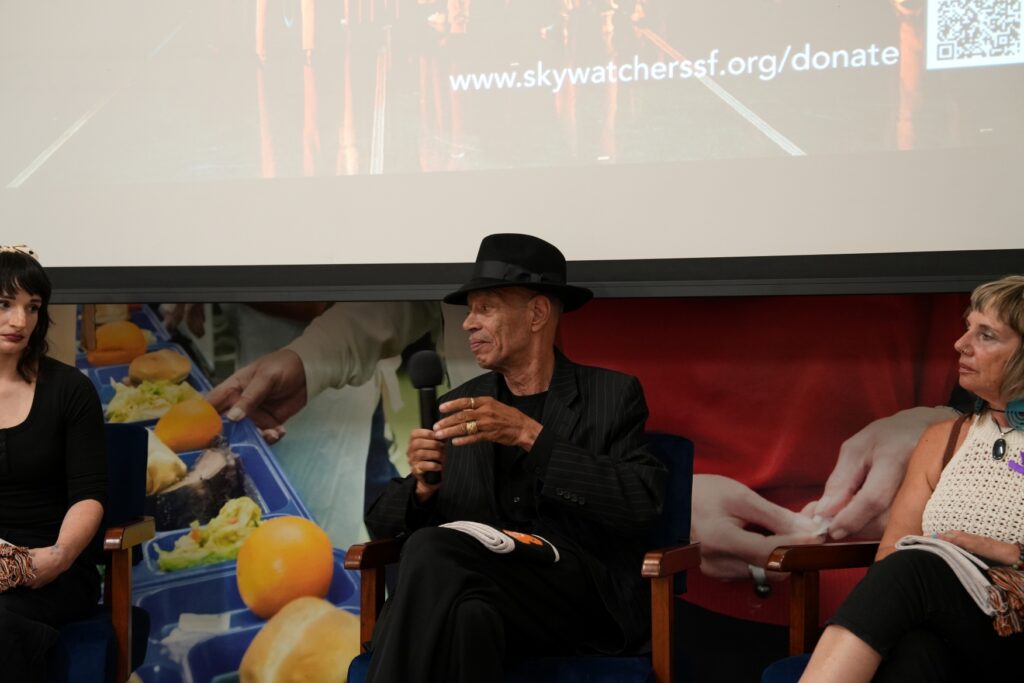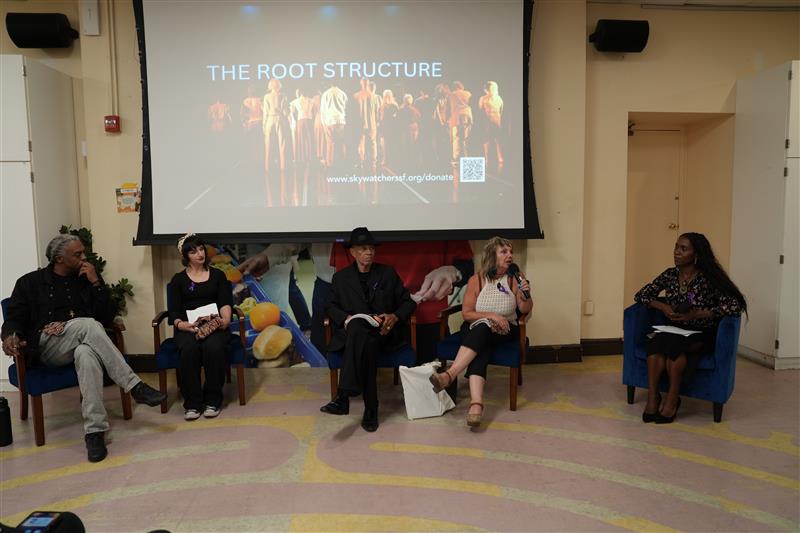
On International Overdose Awareness Day, GLIDE’s Center for Social Justice hosted a powerful panel of regional and national leaders to spark dialogue about overdose awareness, prevention, and compassionate care. The event honored those lost to overdose while lifting up evidence-based strategies that save lives.
Moderated by Naeemah Charles, Senior Director of GLIDE’s Center for Social Justice, the discussion featured four leaders whose expertise is rooted in both lived experience and professional advocacy:
Del Seymour – GLIDE Board member, founder of Code Tenderloin and Tenderloin Walking Tours, and a survivor of 18 years of addiction. Known as The Mayor of the Tenderloin, Del spoke powerfully about overdose awareness through the lens of survival and community.
Apple Cronk – Alum of GLIDE’s Social Justice Academy, mother, writer, and advocate whose lived experience with homelessness and addiction fuels their fight for justice.
Laura Guzman – Executive Director of the National Harm Reduction Coalition (NHRC), advancing harm reduction, housing, and health equity nationwide.
Maurice Byrd – Licensed Marriage and Family Therapist and harm reductionist with two decades of experience creating mental health programs for people navigating substance use, homelessness, and chronic mental health conditions.
Humanizing the Overdose Crisis
The panel illuminated the urgent need for overdose awareness and compassionate solutions to the epidemic:
Del Seymour reminded us not to lose sight of humanity: “Let’s deal with humanity. It seems like this city has forgotten about humanity.”
Maurice Byrd emphasized that overdose impacts us all: “Overdose looks like me. It looks like you.”
Apple Cronk highlighted the importance of centering the voices of people who use drugs: “Let drug users be in charge of their own health needs. Meet people where they’re at. I can be abstinent and a harm reductionist. I can carry Narcan to keep someone alive.”
Laura Guzman warned of disturbing trends: rising overdose deaths among Black and Brown communities and the isolation caused by stigma: “Numbers look really bad in 2025. Fifty percent of deaths are in Black and Brown communities. Most people dying are dying in housing, not in the streets.”
Honoring Lives, Inspiring Action
The conversation closed with a call for hope, remembrance, and overdose awareness as a path to prevention:
Del Seymour: “They lived a whole life. It’s not what happened on that last night. The person had a disease just like cancer. They died of a disease.”
Laura Guzman: “Say their names. And remember that overdoses are preventable. Overdose is something that can be addressed. It’s not something that needs to be policed.”
Maurice Byrd: “I want this work to inspire me to keep up the fight. To do something. How do we turn these words into action?”
Apple Cronk: “Little steps are a big deal. Ask people what they need, offer them support, and they can do great things.”
GLIDE’s Commitment to Overdose Awareness
International Overdose Awareness Day is a time to honor those we have lost and recommit to ending preventable deaths. At GLIDE, our Health Empowerment and Access team works every day to advance overdose awareness, harm reduction, and recovery support. We meet people where they are—with compassion, dignity, and without judgment.
This blog is dedicated to the lives lost to overdose in the past year. We carry forward this work in your name, with hope, action, and unwavering commitment to overdose awareness.

